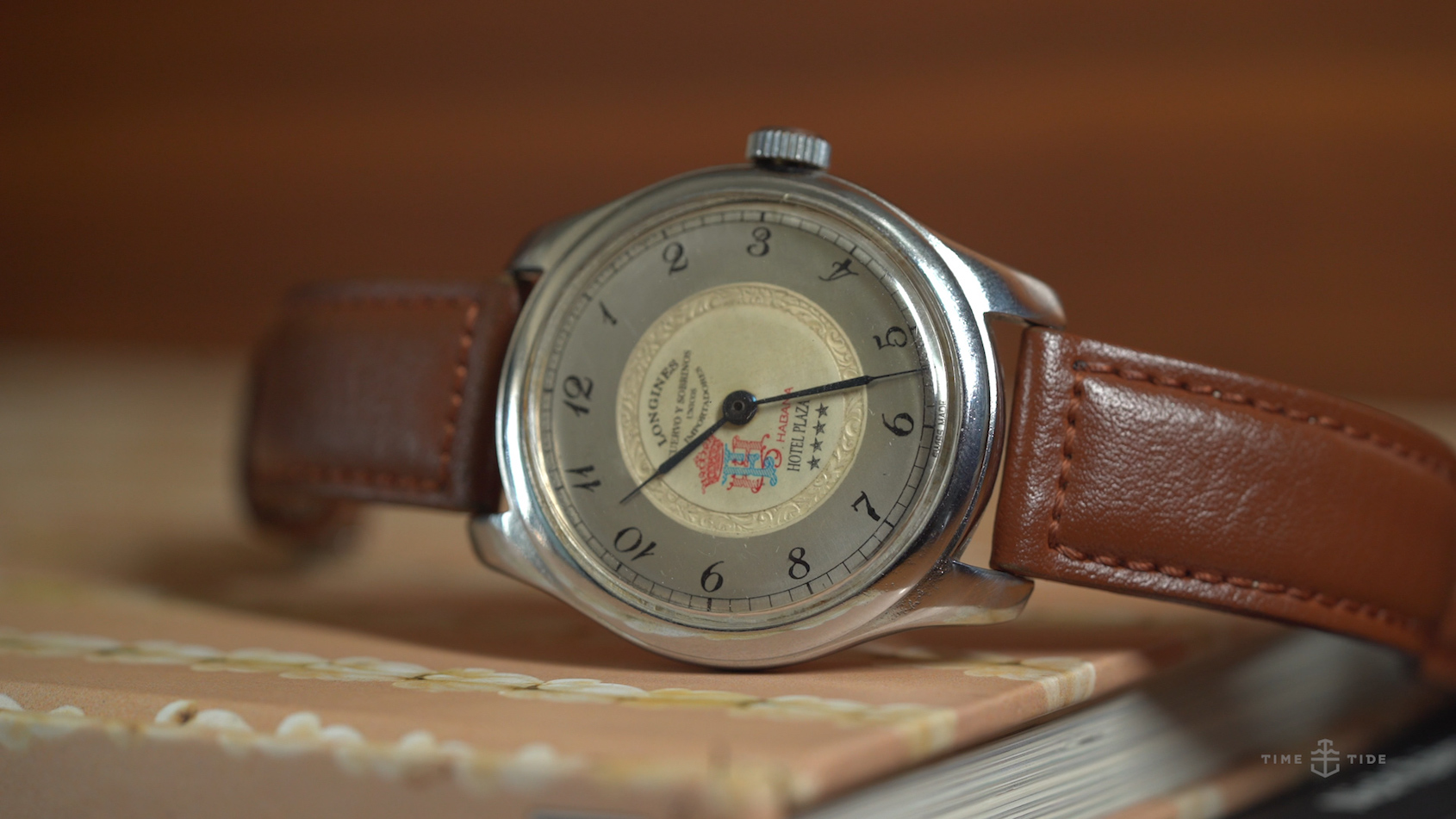How Fidel Castro kept a mid-century Longines in a time-capsule of collectibles
Nick KenyonEditor’s note: I met Adam for the first time recently at a Longines event, and was blown away when he produced a roll of five watches from his pocket. Apart from some stunning Enicar watches from the ’60s, he also had a rather large, time-only watch, with an interesting dial. We got chatting and he told me the story of his mid-century Longines double signed with the retailer Cuervo y Sobrinos. Adam found it in Havana after persisting with a watch dealer for three days to show him the most interesting pieces from the back of his safe. Adam also noted that Cuba was a unique location for luxury goods, as Fidel Castro’s regime locked all the country down through restricting imports, unintentionally turning the country into a time-capsule for mid-century collectibles. While that might be a small highlight in a troubled period of history, it certainly makes for a great watch collecting story.
When someone’s watch story starts in the backstreets of Havana, you know it’s going to be good. In fact, it would be a good story, even if the watch itself didn’t match up to the tale. Luckily for all involved, Adam’s oversized mid-century Longines, double signed with famous retailer Cuervo y Sobrinos, stands up. On its own, the watch is big and attention-seeking, but it’s really the fancy dial that steals the show. Even more so when we learn that the dial is made to resemble a poker chip from the (in)famous Hotel Plaza, which was owned and operated by the Philadelphia Mob in the 1950s, up until 1959, when they were turfed out by Fidel Castro.

We often talk about vintage watches having their own stories, and here the tale is twofold. There’s the story of how Adam acquired it, which is pretty great (backstreet sales trump eBay every time), and then there’s the unknown story, of who bought it and why. I don’t know about you, but I think I prefer the possibilities offered by speculation to the cold hard facts of history.




